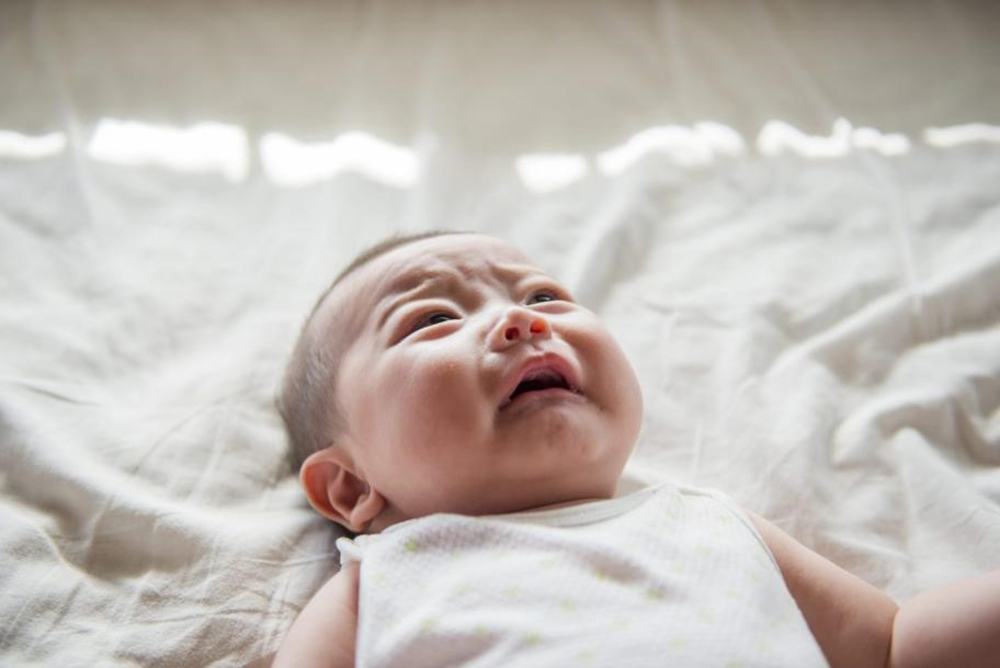
由于婴儿纸尿裤的需求急剧下降,日本一家纸尿裤制造商将专注于生产老年人专用纸尿裤,这不禁让人联想到日本的人口老龄化社会现实。
日本纸制品制造商王子控股株式会社(Oji Holdings)周一宣布,由于需求急剧下降,该公司将于9月份停止生产一次性儿童纸尿裤。据英国广播公司(BBC)报道,该公司的子公司王子妮飘(Oji Nepia)每年生产4亿片婴儿纸尿裤,低于2001年的峰值7亿片。
王子控股株式会社在一份声明中表示:“集团的目标是通过集中投资于具有高盈利能力和增长潜力的业务来转变其业务组合,以提高企业价值。目前终止国内一次性儿童纸尿裤业务就是基于这一发展战略。”
在日本市场,由于需求的变化,自2011年以来,成人纸尿裤的销量已经超过了婴儿纸尿裤的销量。2023年,日本的出生人数为758631,比前一年下降了5.1%,这是日本自19世纪以来出生人数最少的一年。日本出生率低的原因是低生育率、高生活成本以及年轻的准父母认为企业文化与养育子女不相容。
据彭博社报道,人口结构的变化促使日本最大的纸尿裤生产商尤妮佳公司(Unicharm Corp.)在2012年做出了同样的决定,转向生产成人纸尿裤。这是日本公司大规模转向老年购物者的战略的一部分,原因是老年购物者往往消费更高。2011年,60多岁的日本人群占全国消费的40%。
尤妮佳宣布这一消息后,超市运营商永旺株式会社(Aeon Co.)的执行副总裁村井翔平说:“老年人将成为消费增长的引擎。”
劳动力减少
但王子控股株式会社进军强大的老龄化消费群体的决定,对日本阴云密布的经济和老龄化人口来说,无疑是一线曙光。
根据世界经济论坛(World Economic Forum)的数据,截至2023年9月,日本超过10%的人口年龄在80岁或以上,国际货币基金组织(International Monetary Fund)预计,到2060年,这一比例将减少四分之一。2023年,该国1.254亿人口减少了80万。
世界经济论坛在2022年的报告中指出,日本几乎一半的劳动力年龄在70岁以上,这对日本的劳动力来说是个坏消息。根据日本厚生劳动省(Ministry of Health, Labour and Welfare)的数据,预计到2040年,包括老年护理行业在内的劳动力缺口将增加三倍,达到69万人。尽管日本的工作岗位与求职者比率上升至1.28,即每100名潜在雇员对应128个职位空缺,但这一比率与疫情爆发前的1.6相比有所下降。
日本首相岸田文雄(Fumio Kishida)在2023年1月对国会议员的施政报告中表示:“日本正处于能否继续作为一个社会运转的边缘。关注儿童和育儿政策问题刻不容缓。”(财富中文网)
译者:中慧言-王芳
2023年,日本的出生率下降了5%以上,是几个世纪以来的最低水平。
由于婴儿纸尿裤的需求急剧下降,日本一家纸尿裤制造商将专注于生产老年人专用纸尿裤,这不禁让人联想到日本的人口老龄化社会现实。
日本纸制品制造商王子控股株式会社(Oji Holdings)周一宣布,由于需求急剧下降,该公司将于9月份停止生产一次性儿童纸尿裤。据英国广播公司(BBC)报道,该公司的子公司王子妮飘(Oji Nepia)每年生产4亿片婴儿纸尿裤,低于2001年的峰值7亿片。
王子控股株式会社在一份声明中表示:“集团的目标是通过集中投资于具有高盈利能力和增长潜力的业务来转变其业务组合,以提高企业价值。目前终止国内一次性儿童纸尿裤业务就是基于这一发展战略。”
在日本市场,由于需求的变化,自2011年以来,成人纸尿裤的销量已经超过了婴儿纸尿裤的销量。2023年,日本的出生人数为758631,比前一年下降了5.1%,这是日本自19世纪以来出生人数最少的一年。日本出生率低的原因是低生育率、高生活成本以及年轻的准父母认为企业文化与养育子女不相容。
据彭博社报道,人口结构的变化促使日本最大的纸尿裤生产商尤妮佳公司(Unicharm Corp.)在2012年做出了同样的决定,转向生产成人纸尿裤。这是日本公司大规模转向老年购物者的战略的一部分,原因是老年购物者往往消费更高。2011年,60多岁的日本人群占全国消费的40%。
尤妮佳宣布这一消息后,超市运营商永旺株式会社(Aeon Co.)的执行副总裁村井翔平说:“老年人将成为消费增长的引擎。”
劳动力减少
但王子控股株式会社进军强大的老龄化消费群体的决定,对日本阴云密布的经济和老龄化人口来说,无疑是一线曙光。
根据世界经济论坛(World Economic Forum)的数据,截至2023年9月,日本超过10%的人口年龄在80岁或以上,国际货币基金组织(International Monetary Fund)预计,到2060年,这一比例将减少四分之一。2023年,该国1.254亿人口减少了80万。
世界经济论坛在2022年的报告中指出,日本几乎一半的劳动力年龄在70岁以上,这对日本的劳动力来说是个坏消息。根据日本厚生劳动省(Ministry of Health, Labour and Welfare)的数据,预计到2040年,包括老年护理行业在内的劳动力缺口将增加三倍,达到69万人。尽管日本的工作岗位与求职者比率上升至1.28,即每100名潜在雇员对应128个职位空缺,但这一比率与疫情爆发前的1.6相比有所下降。
日本首相岸田文雄(Fumio Kishida)在2023年1月对国会议员的施政报告中表示:“日本正处于能否继续作为一个社会运转的边缘。关注儿童和育儿政策问题刻不容缓。”(财富中文网)
译者:中慧言-王芳
A Japanese diaper maker will produce diapers exclusively for older adults amid a steep decline in demand for infant diapers, an ill-boding reminder of Japan’s aging population.
Oji Holdings, a Japanese paper product manufacturer, announced Monday that it would cease production of disposable diapers for children in September after plummeting demand. The company’s subsidiary Oji Nepia manufactures 400 million infant diapers annually, down from its 700 million peak in 2001, BBC reported.
“The Group aims to transform its business portfolio by concentrating investments on businesses with high profitability and growth potential in order to increase corporate value,” Oji Holdings said in a statement. “The current termination of the domestic disposable diaper business for children is based on this strategy.”
In the Japanese market, adult diaper sales have outpaced baby diaper sales since 2011 because of shifts in demand. Births in the country—758,631—were down 5.1% in 2023 from the year before, Japan’s lowest number of births since the 19th century. The country’s low birth rate is due to lower fertility rates, as well as a high cost of living and a corporate culture young prospective parents deem incompatible with raising children.
The demographic changes pushed Unicharm Corp., Japan’s largest diaper producer, to make the same decision to shift to exclusively making adult diapers in 2012, Bloomberg reported. It was part of a larger pivot of Japanese companies marketing to older shoppers, who tend to spend more money. In 2011, Japanese people in their 60s accounted for 40% of the country’s consumption.
“The elderly are going to be the engine of consumption,” Shohei Murai, executive vice president of supermarket operator Aeon Co. said after Unicharm’s announcement.
A shrinking workforce
But Oji Holdings’ decision to tap into a powerful aging consumer base is a small silver lining for Japan’s cloudy and gray economy—and graying population.
Over 10% of Japan’s population is aged 80 or older as of September 2023, per the World Economic Forum, and it’s expected to shrink a quarter by 2060, the International Monetary Fund predicts. In 2023, the country’s population of 125.4 million fell by 800,000.
That’s bad news for Japan’s workforce, almost half of which is over 70, the World Economic Forum reported in 2022. A dwindling population means growing labor shortages on the horizon, including in the elderly care sector, which is predicted to increase threefold to 690,000 by 2040, according to Japan’s Ministry of Health, Labour and Welfare. Though Japan’s job-to-applicant ratio rose to 1.28—128 job openings per 100 employee prospects—the rate dwindled from the pre-pandemic rate of 1.6.
“Japan is standing on the verge of whether we can continue to function as a society,” Japanese Prime Minister Fumio Kishida said in January 2023 policy address to lawmakers. “Focusing attention on policies regarding children and child-rearing is an issue that cannot wait and cannot be postponed.”






